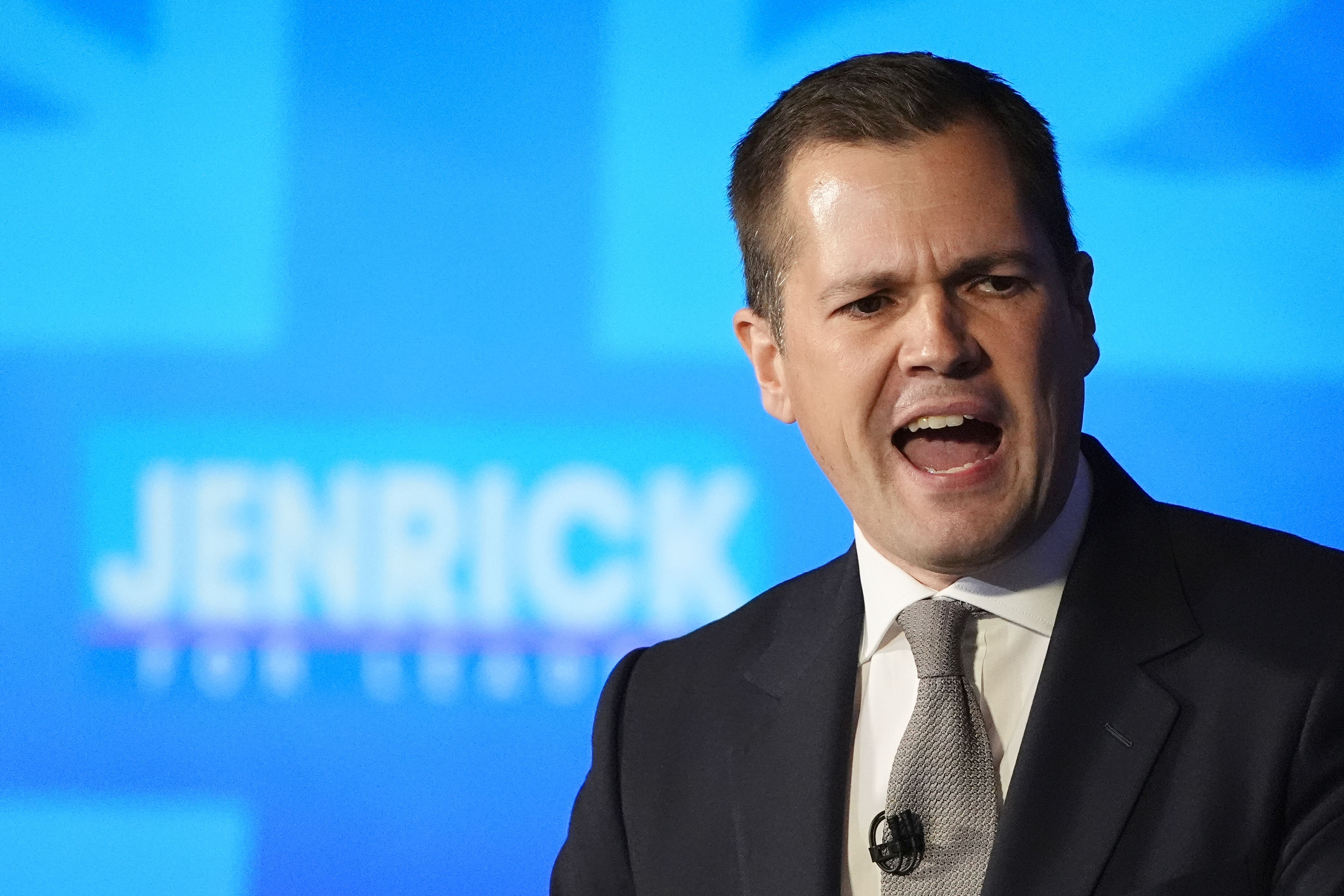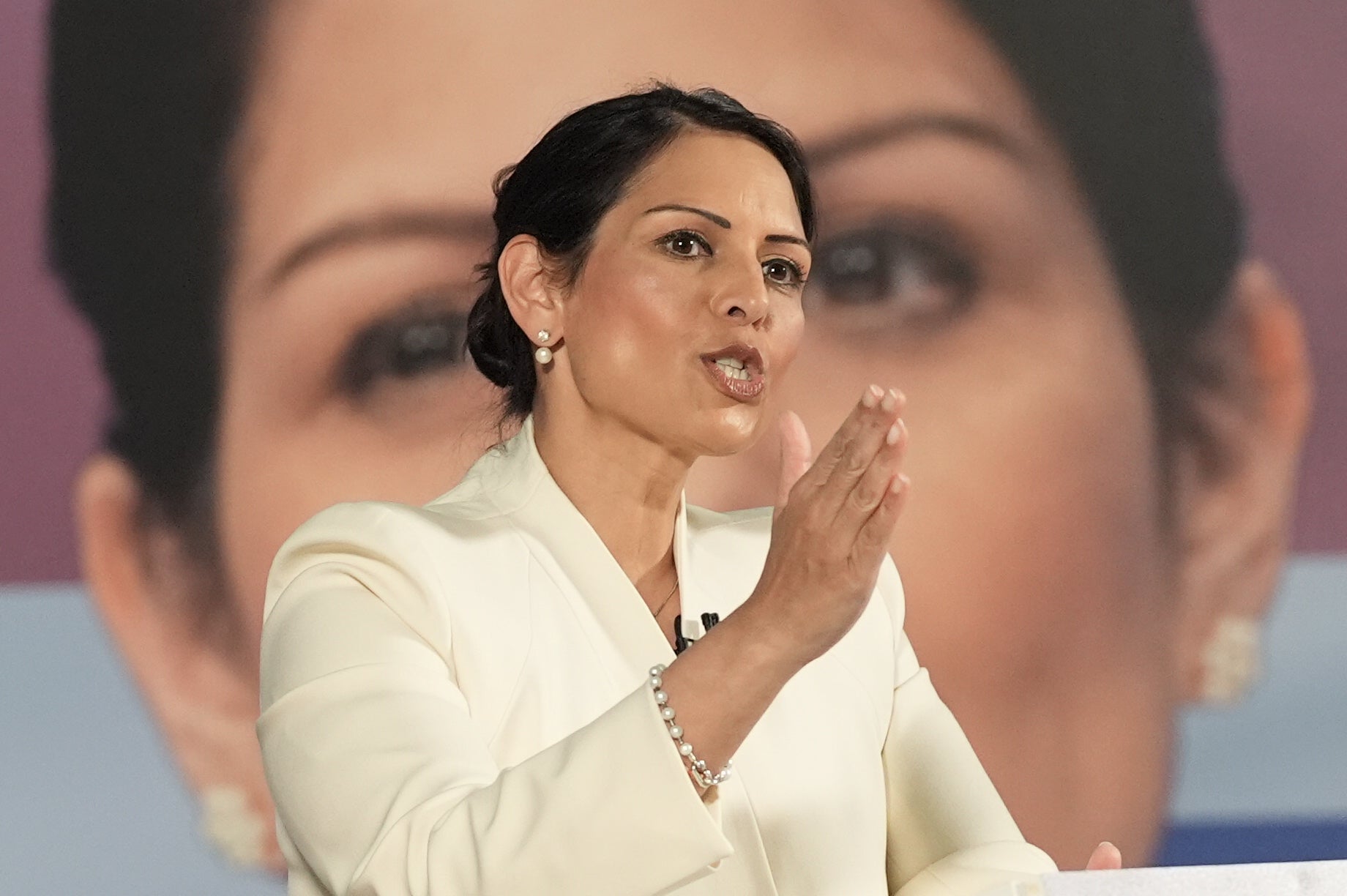Jenrick campaign denies ‘dirty tricks’ amid shock Stride success: Inside the Tory leadership election
News analysis: Tory leadership elections are historically characterised by dirty tricks and vote fixing and the presence and continued success of Mel Stride in the contest has given rise to suspicion
The question “do Tory MPs fix leadership votes with dirty tricks?” is usually on a par with “is the Pope a Catholic?” or “do bears s*** in the woods?”. It is obvious and it happens every time even if it takes place in secret.
So it is of no surprise to anybody that allegations are already being expressed that vote fixing took place in the first round of the current Tory leadership competition.
The suspicions surround former work and pensions secretary Mel Stride who, while seen as a decent chap, is not seen as a serious candidate to replace Rishi Sunak.
Somehow, he managed to get enough Tory MPs to put him on the original ballot and then he got 16 votes, one more than Priti Patel in the first round – meaning the former home secretary was the one who was eliminated.
This was achieved even though Mr Stride has not even had an official leadership campaign launch yet.
Mr Stride now has one of the other early favourites in his sights, former security minister Tom Tugendhat, who only managed to get one more vote, with 17 in the first round.

Essentially, Tory leadership vote fixing is the practice by one of the frontrunners of lending votes to a much less popular candidate who can then be moved up to take out a more serious rival.
This can happen because the Tory MPs get to decide who the final two are before members vote in an open contest.
There have been strong allegations of this happening before. Infamously, MPs supporting Boris Johnson supposedly switched to Jeremy Hunt to ensure he kept Michael Gove out of the final two in 2019. Mr Gove was seen as the bigger threat to Mr Johnson.
Mr Gove was also rumoured to have lost out in 2016 when votes were allegedly switched to Andrea Leadsom by the Theresa May camp. Ms Leadsom was such a weak candidate that she pulled out of the race altogether before members even got a chance to pick from the final two.
Back in the distant past, supporters of Iain Duncan Smith voted to get Ken Clarke into the final two to knock out the overwhelming favourite, Michael Portillo.

Sometimes it can backfire. Rishi Sunak’s team allegedly lent votes to Liz Truss to stop Penny Mordaunt in July 2022 but lost anyway.
What is raising suspicion now is the ever-presence of two former chief whips – Gavin Williamson and Julian Smith – around the Commons. They have previously been accused of tactical voting ploys. In fairness, Mr Williamson has insisted to The Independent that he is staying out of this leadership contest.
But the allegation is that Robert Jenrick’s camp has lent votes to Mr Stride to first eliminate his main rival on the right, Dame Priti Patel, and will do it again to take out Mr Tugendhat.
While Dame Priti took her defeat with incredible good grace, some of her supporters have angrily been making allegations.
There was a claim that three votes were switched from Mr Jenrick to Mr Stride, whom every camp had calculated had 13 supporters, rather than 16.
Team Badenoch now seems to be making a similar claim against the Jenrick camp, possibly in an attempt to dirty his name after he shocked everyone by beating Kemi Badenoch by six votes 28 to 22. There is a clear worry that Ms Badenoch, the long-time bookies’ favourite to replace Mr Sunak and who tops polls of members, could suffer the same fate as Mr Portillo in 2001 before members get a chance to vote for her.
The irony of that is that for months now former culture secretary Nadine Dorries has been claiming that there is “a plot” to install Ms Badenoch as the next Tory leader involving Mr Gove and backroom operator Dougie Smith. That plot does not seem to be working at the moment – if it was ever true.

But figures in Team Jenrick are staggered by the claims and have told The Independent that they are “utter b*****ks”.
There could be something to this. After the first round votes were counted, and Mr Jenrick came out as the clear winner, his response was delayed because, as his spokesperson confided, “we need to take his jaw off the ground first”, such was his apparent surprise.
The team had calculated he would get 24 votes and was trying to work out where the extra four had come from when they were being accused of giving three away to Mr Stride.
And while dirty tricks have featured in previous contests there is a serious question mark over whether it could feasibly happen this time, with the Tories reduced to a mere 121 MPs.
As one Team Jenrick insider said: “There are far too few MPs to play games with anymore. Literally, a swing of one or two could be the difference between staying in or not. It’s utter b*****ks to suggest we lent votes because we simply did not.
“We had expected to come second to Kemi [Badenoch] and were planning our messaging around having picked up momentum to win. We needed as many MPs as we could get so there was no interest in lending votes.”
Others have suggested that it was really Team Badenoch who lent the votes. But if that were true they have done her campaign immense harm by landing her in a distant second place, especially as Patel votes are expected to split mostly between Mr Jenrick and James Cleverly.
Going into the final four, Ms Badenoch could now find herself struggling in third place.
So while Tory leadership elections are almost always characterised by intrigue, maybe this particular leadership election is that most unusual of things – a relatively clean contest.
Join our commenting forum
Join thought-provoking conversations, follow other Independent readers and see their replies
Comments
Bookmark popover
Removed from bookmarks